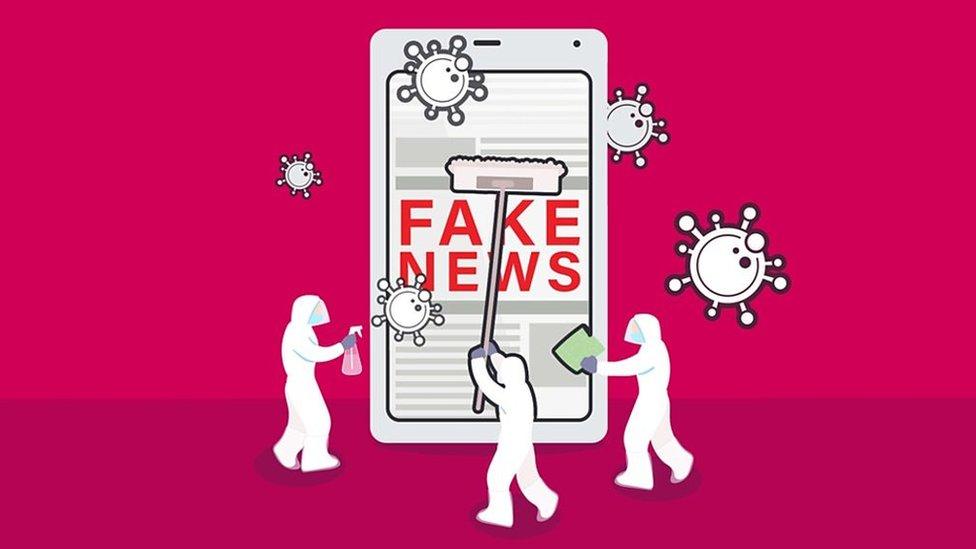Coronavirus: 'Plandemic' virus conspiracy video spreads across social media
- Published
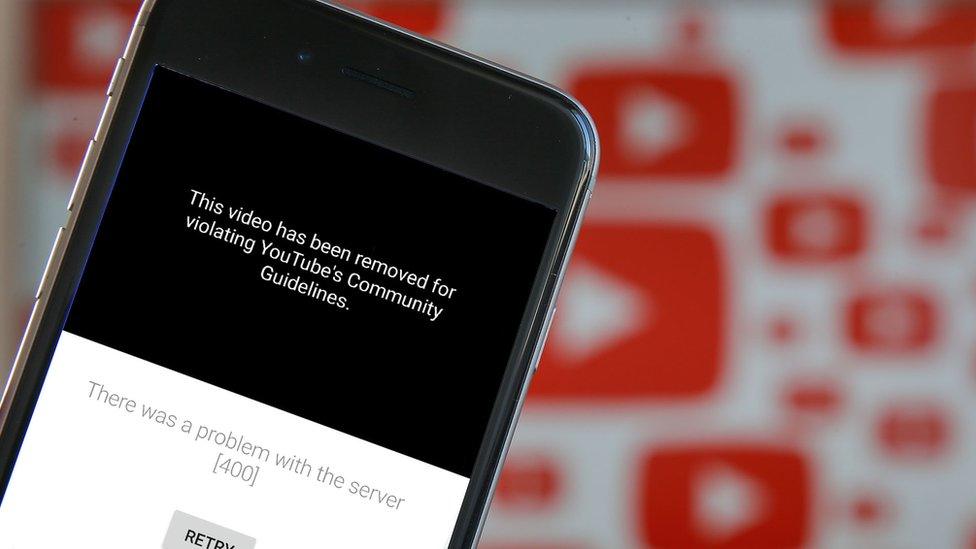
The video is being re-uploaded as quickly as it is taken down
Major social networks are rushing to take down a new coronavirus conspiracy theory video which has rapidly spread across the internet.
The so-called "Plandemic" video is edited in the style of a documentary, with much higher production standards than many conspiracy videos.
The video is filled with medical misinformation about where the virus came from and how it is transmitted.
Despite efforts to remove it, users are constantly re-uploading the clip.
Since the 26-minute video first appeared earlier this week, it has exploded across YouTube, Facebook, Twitter and other websites, prompting an attempt to remove it.
Among its claims are that the virus must have been released from a laboratory environment and could not possibly be naturally-occurring; that using masks and gloves actually makes people more sick; and that closing beaches is "insanity" because of "healing microbes" in the water.
Such claims are not supported by reliable medical and scientific advice.
The video also suggests that the number of deaths is being deliberately falsified, in order to exert control over the population.

Analysis
By Marianna Spring, specialist disinformation reporter
Scammers, pranksters and politicians have all been guilty of starting misleading rumours - but people passing themselves off as experts in videos like this one have become crucial to the spread of false claims.
Documentary-style films which promote conspiracy theories are increasingly popular, and a marked evolution from the dodgy medical advice being forwarded on WhatsApp at the start of the pandemic.
Slick production means videos often look quite credible initially - before promoting totally false claims. That makes them as dangerous - if not more so - than advice with a mix of truth and misleading medical myths.
The videos often get a lot more attention than content from trusted media outlets, and the controversial experts they feature have amassed their own fan bases. The misinformation they propagate usually serves to undermine information from trusted health bodies and authorities.
It's a game of cat-and-mouse for social media sites like YouTube, since the same item can be uploaded again and again by different users.

The video has been viewed millions of times across multiple platforms. Facebook, YouTube, and Vimeo have all removed versions of it from their sites.
But such efforts may benefit the film-maker, who claims that there is a large-scale conspiracy to hide the truth.
In a post saying the 26-minute video is an excerpt from a future full-length documentary, he urges readers to download the video directly and re-post it elsewhere, "in an effort to bypass the gatekeepers of free speech".
Since the pandemic began, the social networks have all had to adapt their content policies to deal with potentially dangerous misinformation.
Twitter said it would remove "unverified claims" that could prove dangerous, while Facebook has brought in new tools to point users towards reliable sources of information.
YouTube said it removes "medically unsubstantiated diagnostic advice", and this video was removed for making claims about a cure for Covid-19, even though it is not backed by health organisations.

FACE MASKS: Should I be wearing one?
VACCINE: How close are we to finding one?
A SIMPLE GUIDE: How do I protect myself?
AVOIDING CONTACT: The rules on self-isolation and exercise
LOOK-UP TOOL: Check cases in your area

- Published4 May 2020
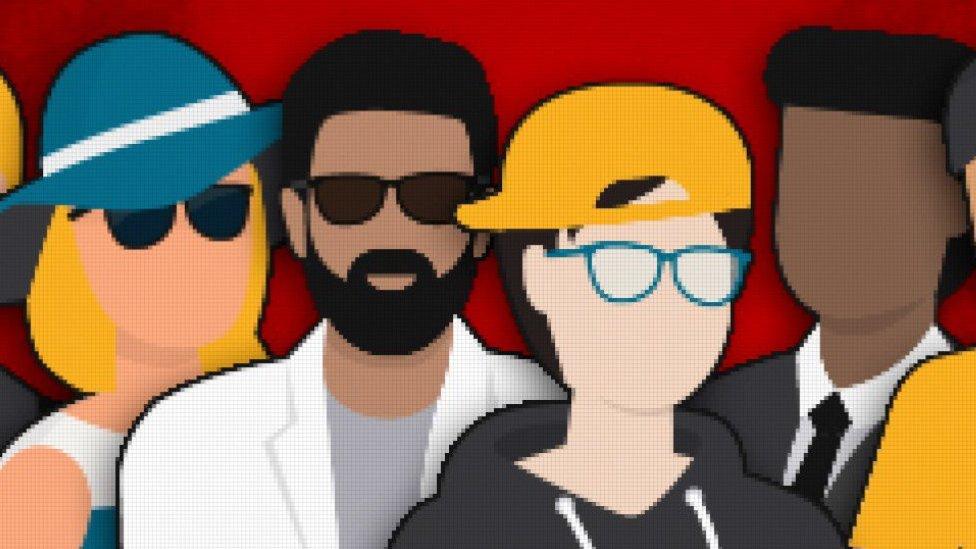
- Published20 April 2020

- Published16 April 2020
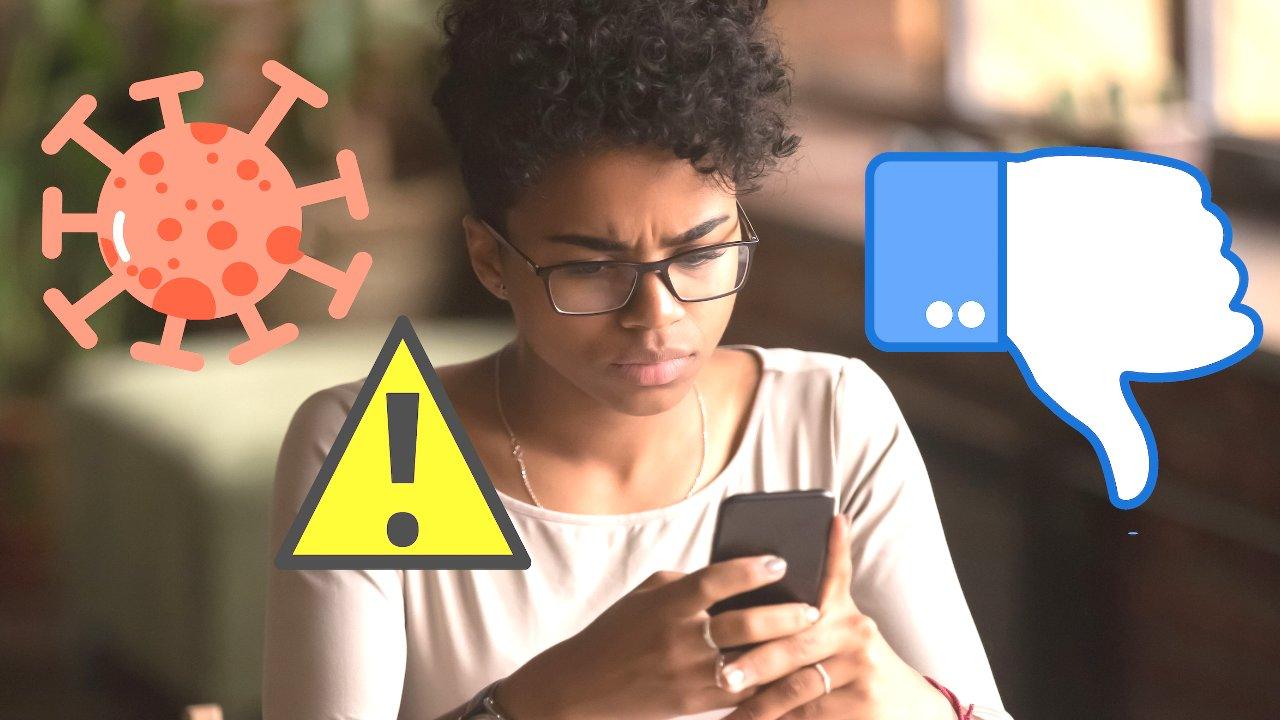
- Published24 April 2020

- Published4 May 2020

- Published23 February 2020
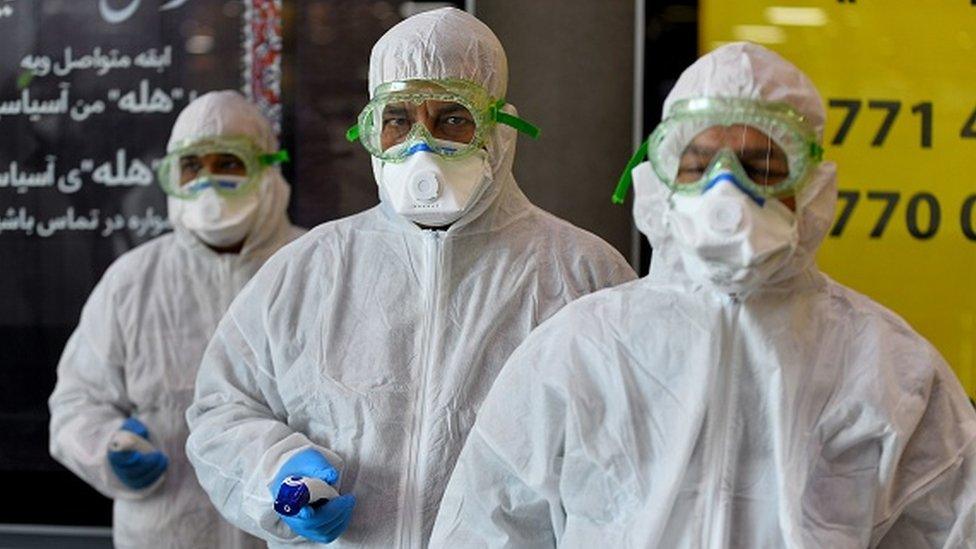
- Published21 April 2020

- Published1 April 2020
